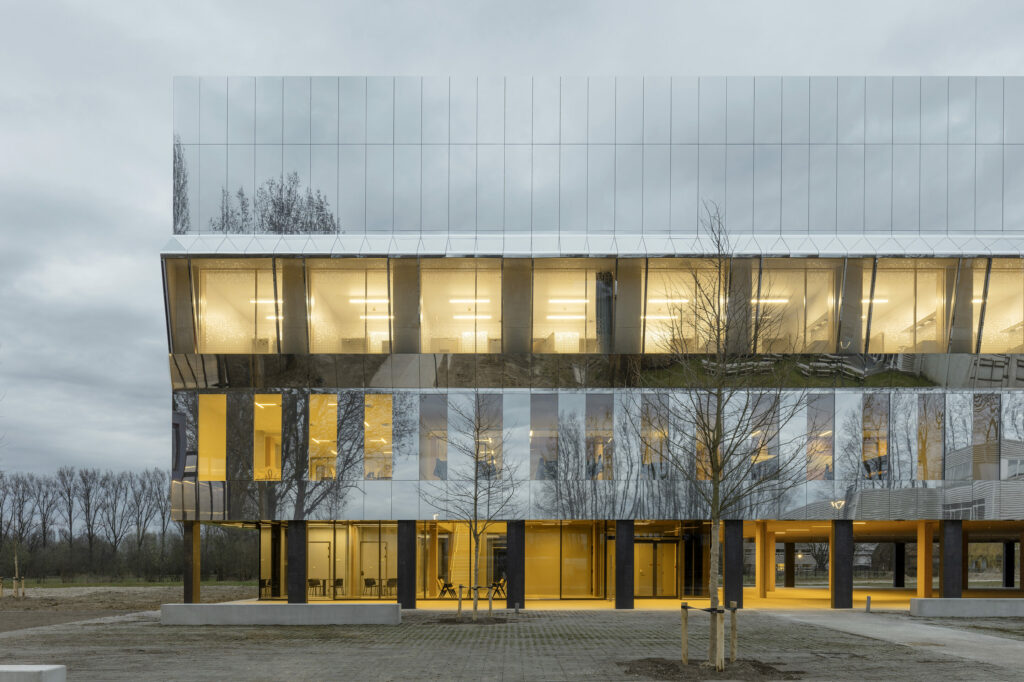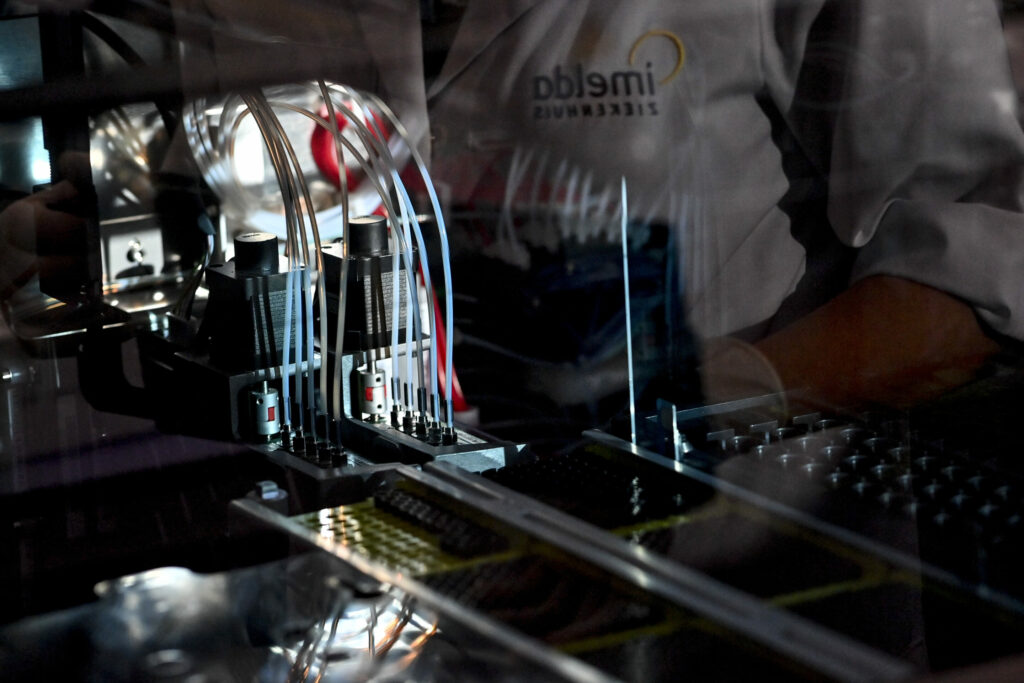The latest generation of Covid-19 vaccines – which are not injected but administered through a spray – will be extensively tested at the Vaccinopolis facility in Antwerp next year.
They should not only reduce the severity of the disease, but also stop the spread of the virus.
While the existing Covid-19 vaccines have undeniably played an important role in bringing the pandemic under control (by significantly reducing the risks of severe health problems after infection), the virus is still circulating and there is a chance that new, potentially dangerous variants may emerge.
"Therefore, vaccines that can stop the transmission of a virus, rather than just reduce the severity of the disease, are critical to rapidly ending pandemics and epidemics," said Dr Richard Hatchett, CEO of the Coalition for Epidemic Preparedness Innovations (CEPI).
CEPI and London's Imperial College are leading an international consortium that will evaluate new kinds of Covid-19 vaccines, which will stop the spread of the virus. "This is a potential game-changer," said professor and vaccinologist Pierre Van Damme (UAntwerpen).

Vaccinopolis. Credit: UAntwerp
In total, €62 million will be invested in the project, which was named 'Mucosal Immunity in human Coronavirus Challenge' (MusiCC). Through the Horizon Europe programme, the EU is contributing €35 million, and two Belgian universities (University of Antwerp (UAntwerp) and the Université Libre de Bruxelles (ULB)) are also participating.
"These are vaccines that will not be injected," said Professor Arnaud Marchant (ULB). "These experimental vaccines are inhaled through the lungs or sprayed into the nose. They are designed to induce mucosal immunity."
Mucosal refers to the mucous membranes: coronaviruses (which include Covid-19, but also MERS and SARS) usually infect people through the cells in their nose, throat and lungs. "If the mucous membranes can be made immune, virus transmission can be stopped," said Marchant.
The new vaccines will be tested at several sites worldwide through so-called human challenge studies. Volunteers will also participate in the study at Vaccinopolis, the state-of-the-art testing facility for candidate vaccines at UAntwerp.
Related News
- Doubts about vaccines? Young people in Flanders much more sceptical than old
- Covid-19: At least 1.4 million lives saved in Europe thanks to vaccines
- From 'disastrous' to 'resilient': Five major takeaways from Belgium's Covid-19 policy
"Healthy people will receive the candidate vaccine and are then exposed to a modified dose of Covid-19," said Van Damme. "This quickly clarifies the effectiveness of a candidate vaccine in controlled conditions."
The vaccines that will be developed will not only fight the SARS-CoV-2 virus, but will also target the MERS virus and several seasonal viruses that cause common colds.
Importantly, candidate vaccines that successfully pass the testing phase will also be available to the most vulnerable populations at an affordable price. All research results arising from MusiCC will be made available to the scientific community.

